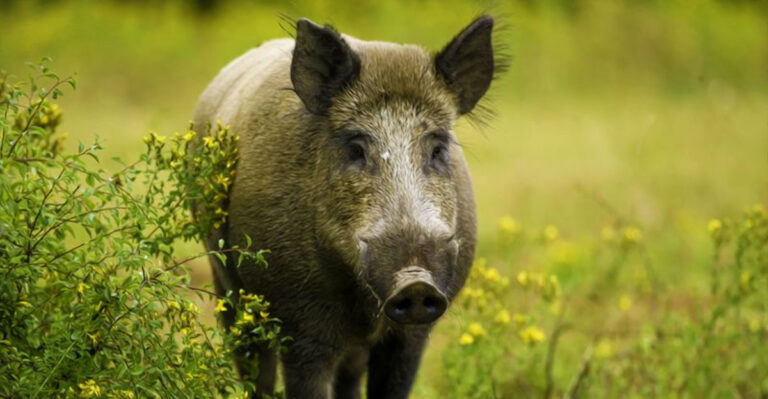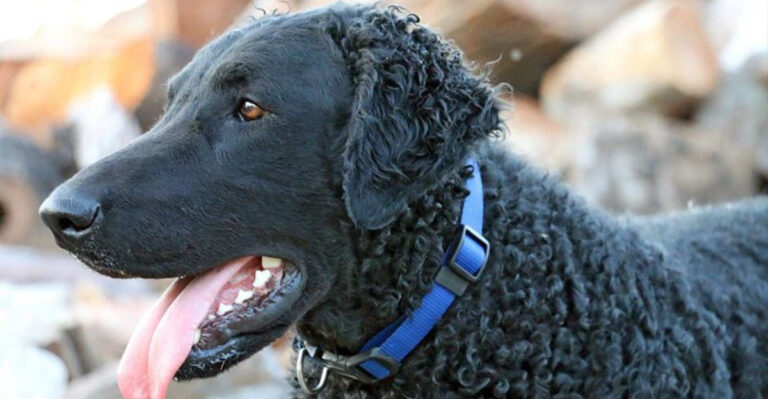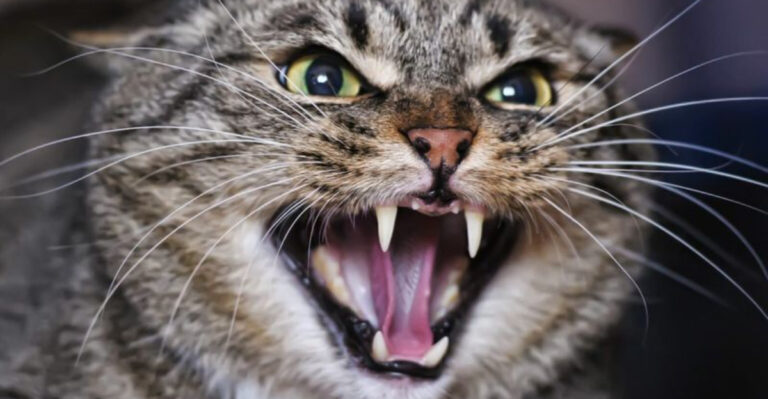16 Surprising Turkey Facts Every Aspiring Farmer Should Know
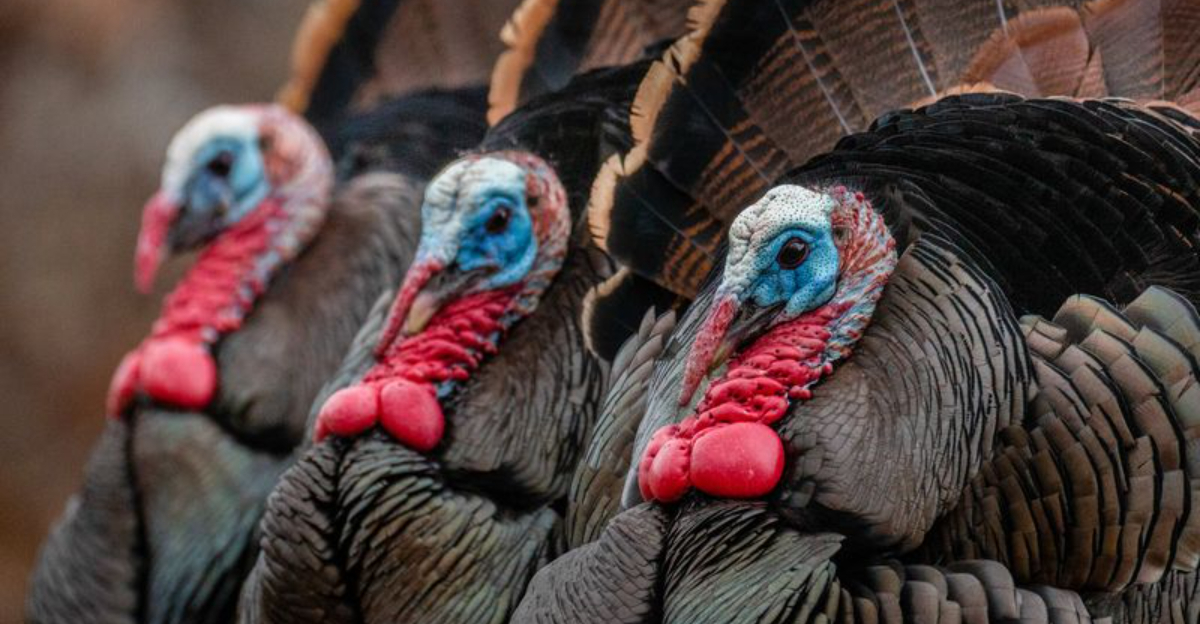
Turkeys might strut like they own the place – and honestly, they kind of do. These birds are smarter, sassier, and way more complex than most people think.
Whether you’re dreaming of a backyard flock or a full-blown farm, there’s a lot to learn before you bring them home.
From unexpected habits to quirky personalities, here’s what every future turkey-tender needs to know.
1. Turkeys Can Fly
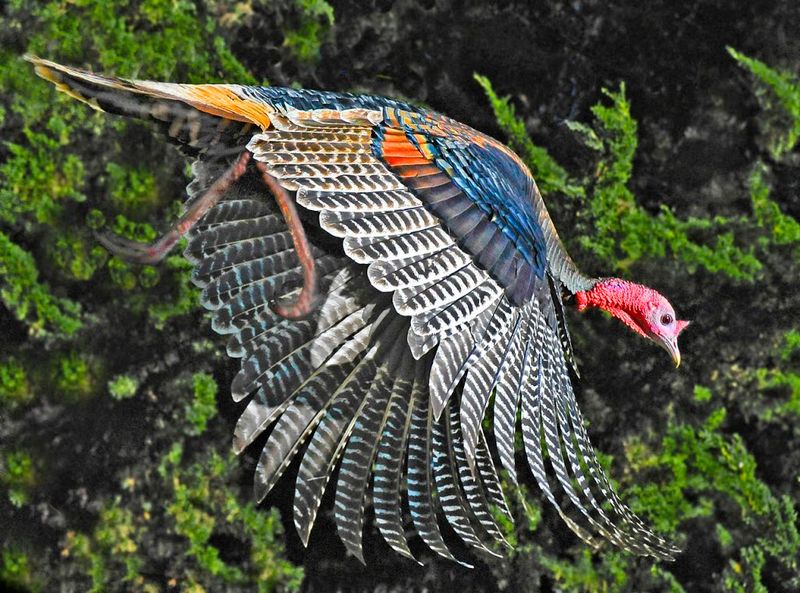
It might sound unbelievable, but wild turkeys are excellent fliers. They can reach speeds up to 55 miles per hour! In contrast, domestic turkeys, with their plump physiques, aren’t built for flight.
Instead, they rely on their human caretakers for mobility. Their wild cousins, however, take to the skies with ease, usually to escape predators or roost in trees.
2. Unique Vocalizations
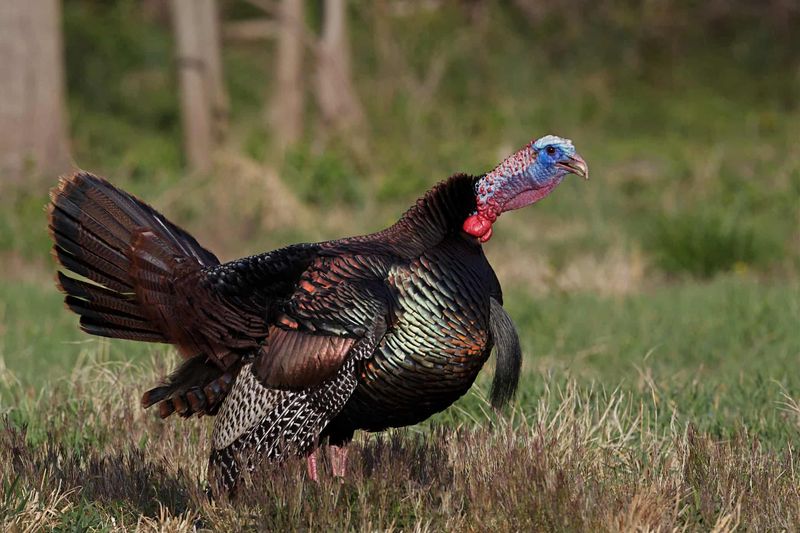
Turkeys have a fascinating range of vocalizations beyond the iconic gobble. Males are known to make this sound to attract females and establish dominance.
Meanwhile, hens communicate through purrs, yelps, and clucks. These vocal intricacies are not just random noises but serve specific social functions.
3. A Social Species
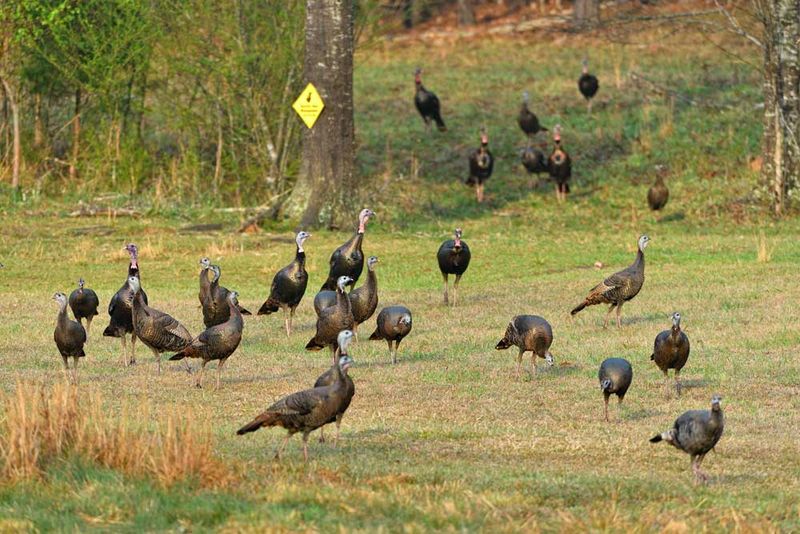
Known for their social behavior, these birds thrive in flocks where they form strong bonds and structured hierarchies. Group dynamics play a big role in how they interact and communicate.
A well-connected flock often leads to healthier, happier individuals on the farm.
4. 360-Degree Vision
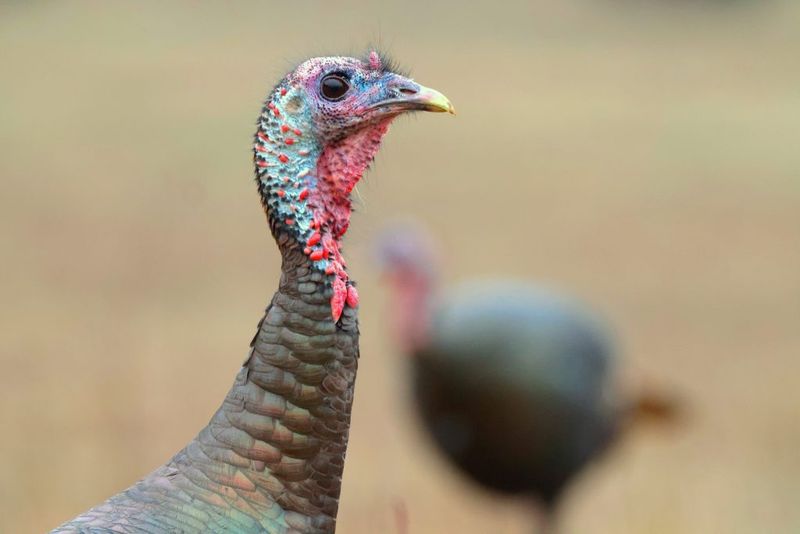
Turkeys have a remarkable field of vision, nearly 360 degrees! This incredible eyesight helps them spot predators from afar.
Their eyes are placed on the sides of their heads, giving them a panoramic view. Although they have limited depth perception, their wide vision compensates for this.
5. A Colorful Display
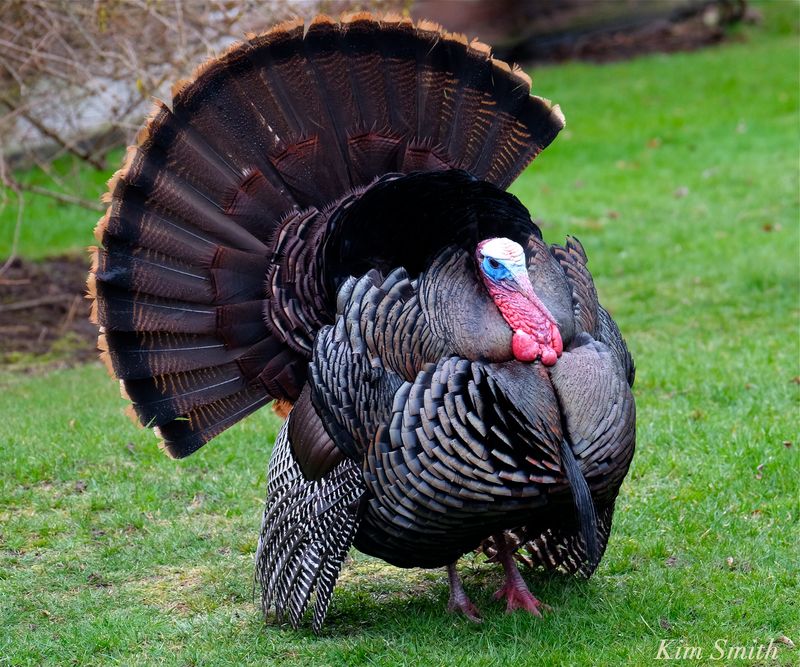
The male turkey, or gobbler, is known for its dazzling plumage. During courtship, it fans its tail feathers and struts around, showing off vibrant colors ranging from deep bronze to shimmering greens.
This display is not just for beauty; it’s a critical part of attracting a mate. The more vibrant and elaborate, the better chances of wooing a hen.
6. A Presidential Tradition
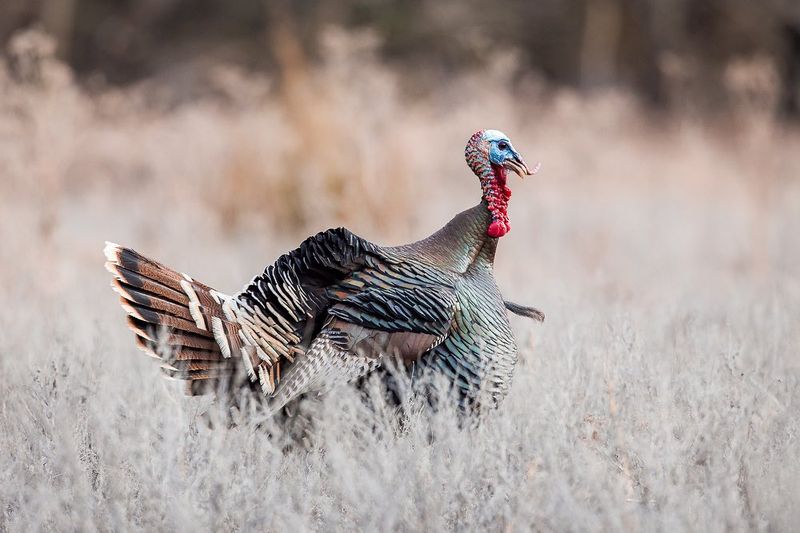
Every year, one lucky turkey receives a presidential pardon before Thanksgiving. This quirky tradition began in the mid-20th century, giving the chosen turkey a free pass from the dinner table.
Instead, the pardoned turkey spends its days in leisure on a farm or in a historical park. It’s a delightful nod to Thanksgiving history and a charming American custom.
7. Turkeys Recognize Faces
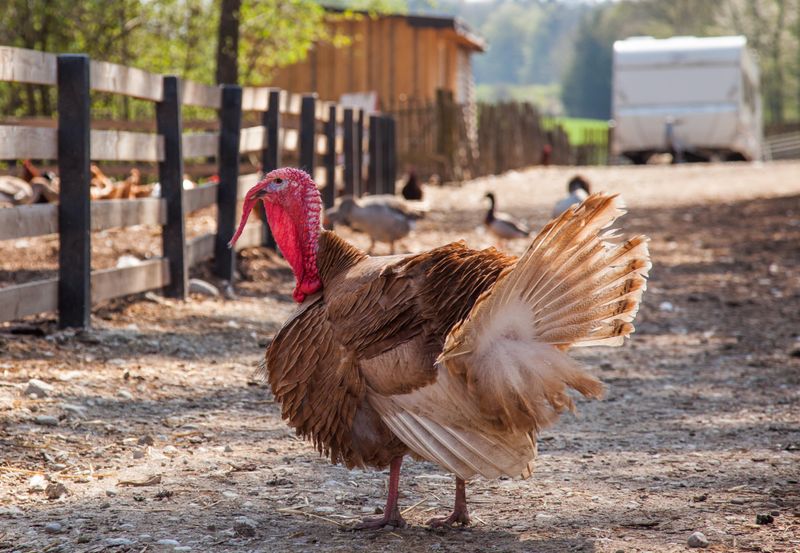
Believe it or not, turkeys can recognize human faces. This ability makes them surprisingly personable farm animals.
They remember interactions and can even respond to familiar humans in friendly ways. This trait makes turkeys unique compared to other poultry, offering a more engaging farming experience.
8. Turkeys Have Beards
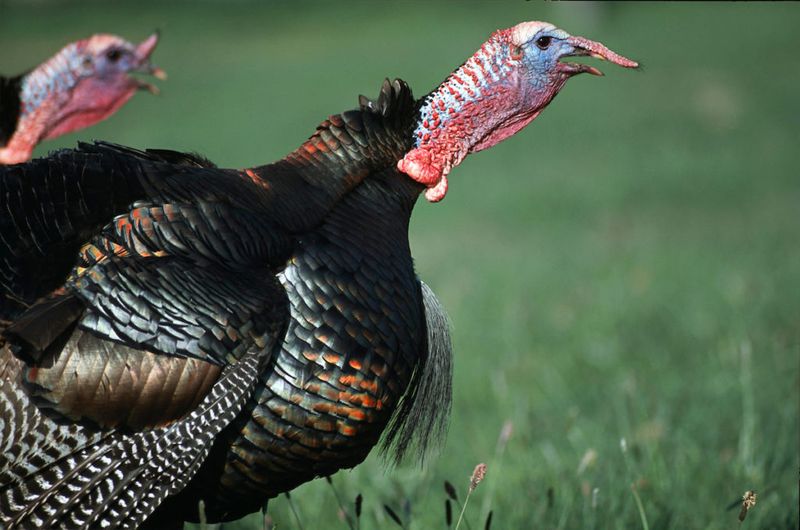
Did you know? Some turkeys sport beards! This beard isn’t facial hair but a tuft of coarse feathers growing from the chest, primarily in males.
Occasionally, even females might have them. An intriguing feature, the beard’s function is still a topic of study among scientists, but it’s often considered a sign of maturity and health.
9. The Snood’s Role
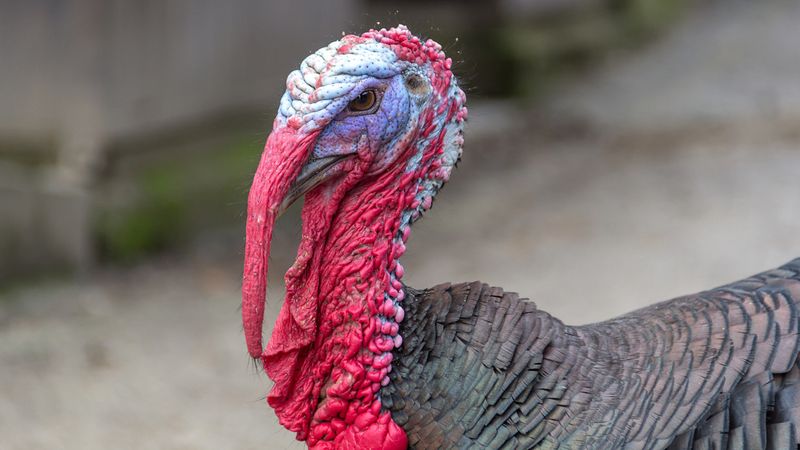
The snood, a fleshy protuberance on a turkey’s head, might look peculiar, but it plays a significant role. During courtship, it becomes engorged with blood, changing color and size.
This eye-catching transformation helps in attracting a mate. Additionally, the snood can indicate a turkey’s health and status within its flock, making it more than just a funny ornament.
10. Amazing Memory
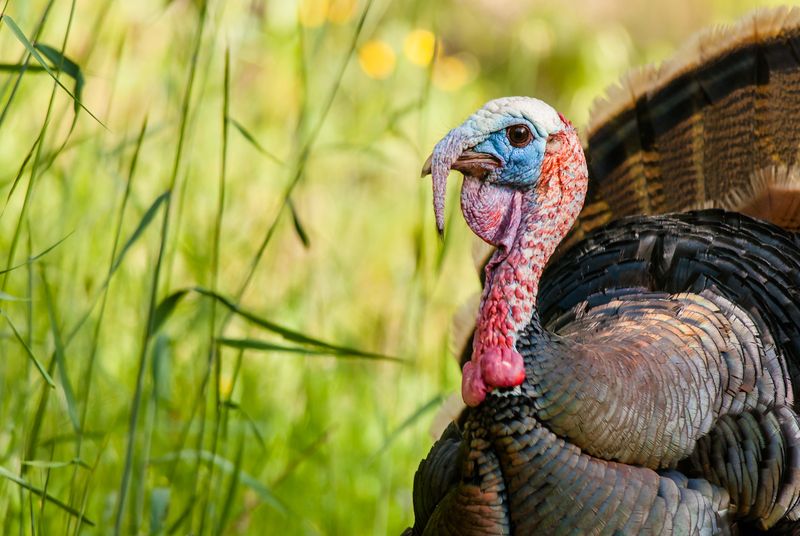
Turkeys have an impressive memory. They can recall specific locations, recognizing landmarks and even remembering where food is stored.
This skill allows them to navigate their environment with ease, making them surprisingly clever creatures.
Their memory serves an essential role in their survival, aiding in finding food and avoiding dangers in the wild.
11. Turkeys Love To Roost
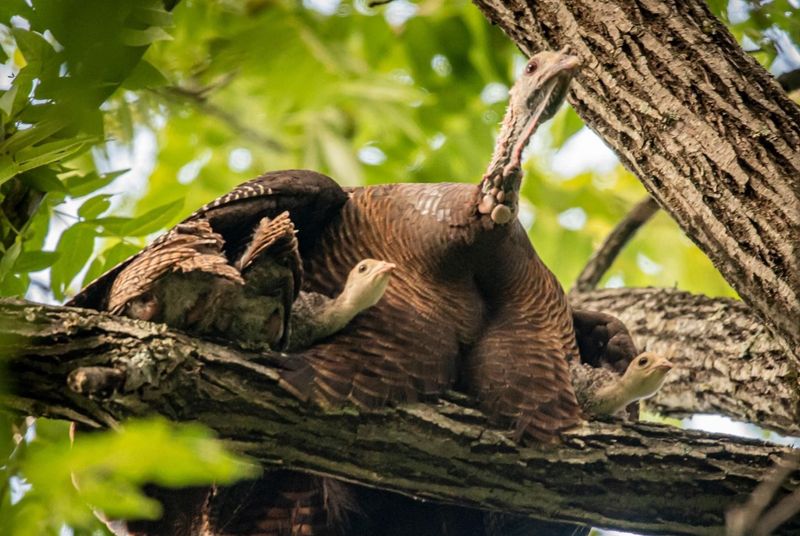
With a natural instinct to roost at night, these birds seek elevated spots for rest and safety. Perching high up protects them from predators and offers a sense of security.
Creating roosting spaces on the farm supports their instinct and promotes happier, healthier flocks.
12. Turkeys Have A Sweet Tooth
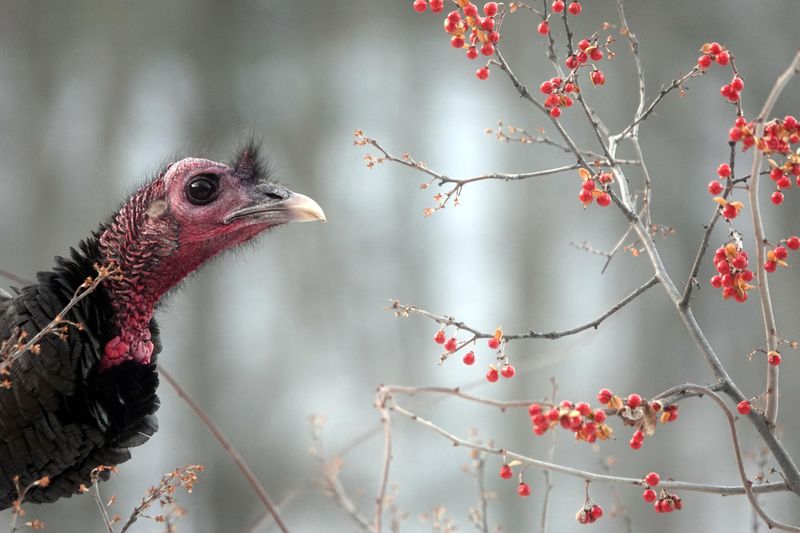
Turkeys are known to have a fondness for sweet things. From juicy berries to ripe fruits, they relish these treats whenever they can find them.
This sweet preference is not just a quirky habit but a part of their natural diet. For farmers, offering occasional sweet treats can keep turkeys happy and engaged, fostering a positive farming environment.
13. A Taste For Variety
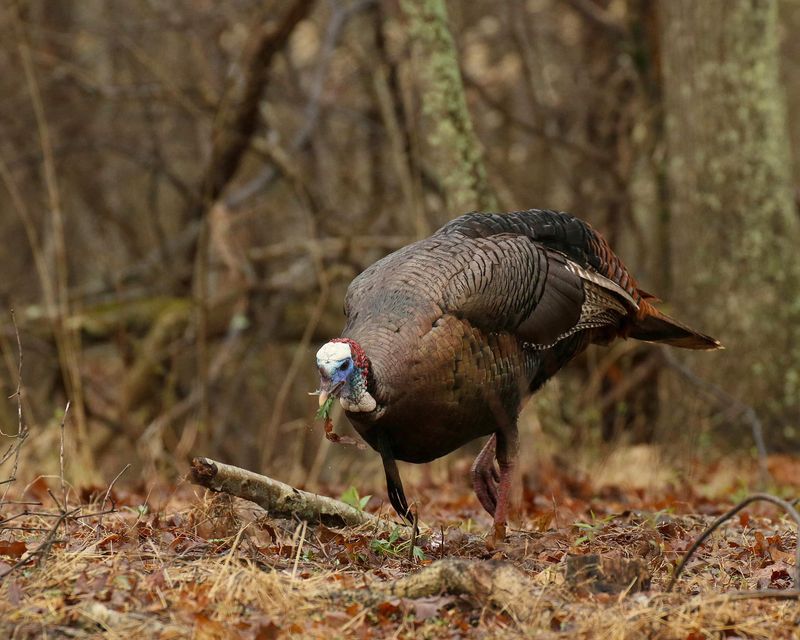
Far from being picky, these birds enjoy a wide-ranging diet that includes grains, seeds, insects, and the occasional small amphibian. Variety is key to keeping them strong and thriving.
Offering diverse, nutrient-rich food options on the farm supports both their health and your success.
14. Historical Significance
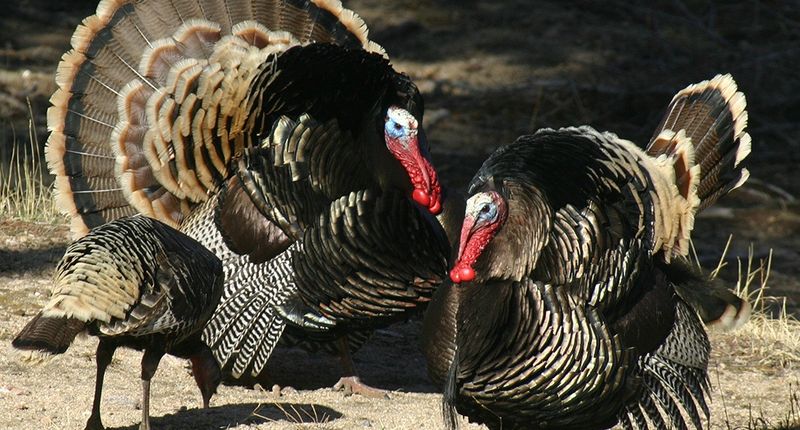
Long before Europeans set foot in North America, these birds were domesticated by Indigenous peoples for food and cultural significance. Centuries of shared history have made them more than just livestock.
Recognizing their roots adds depth to the role they play on today’s farms.
15. Impressive Intelligence
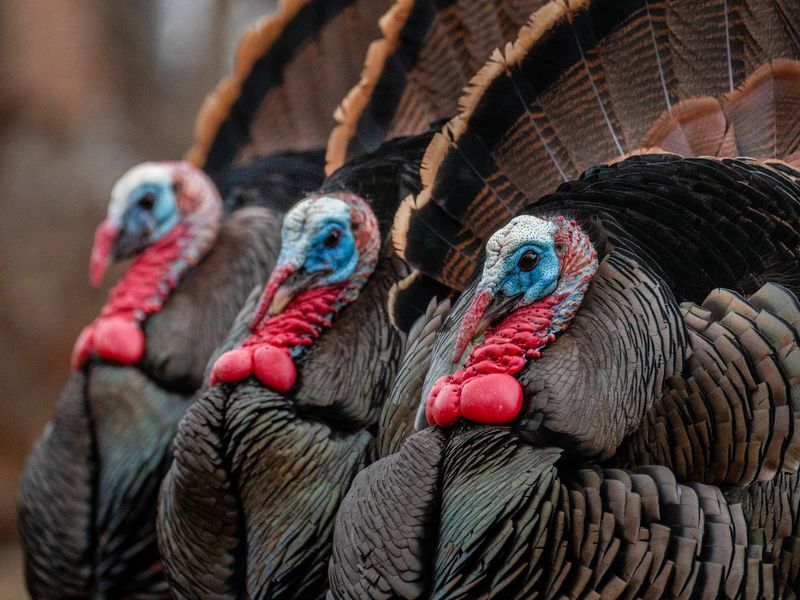
Turkeys aren’t just about looks; they’re surprisingly intelligent. They can learn and remember tasks, showing problem-solving skills that rival some mammals.
They engage with their surroundings in ways that display curiosity and adaptability. This intelligence makes them engaging companions for farmers, offering more than just feathered company.
16. Seasonal Behavior Changes
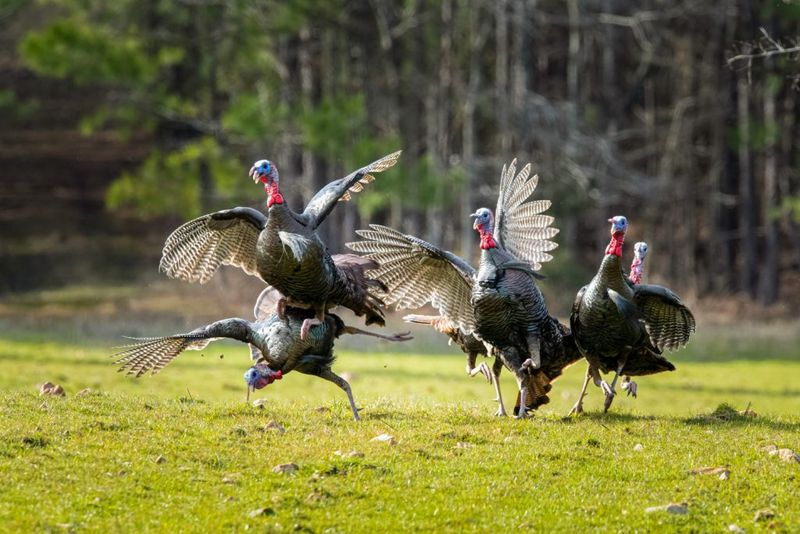
Known for adjusting to seasonal shifts, these birds display courtship behavior in spring and turn their attention to foraging come autumn. Such changes highlight their natural resilience and ability to thrive year-round.
Farmers who tune into these rhythms can better support their needs and improve flock success.

